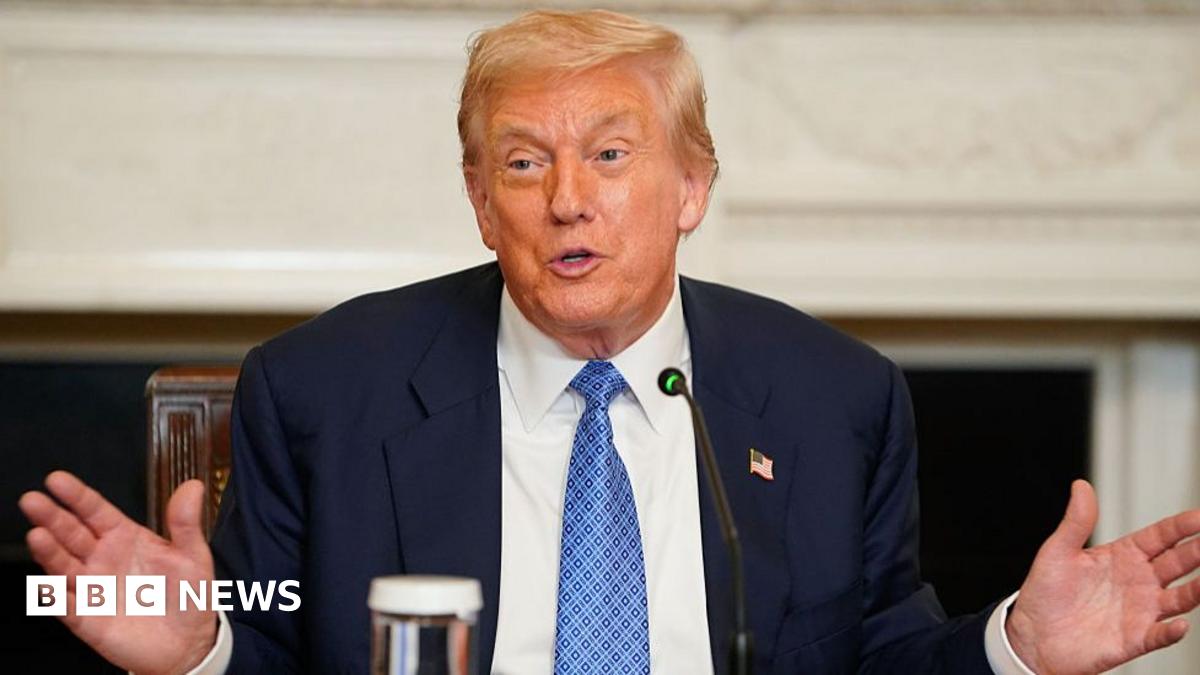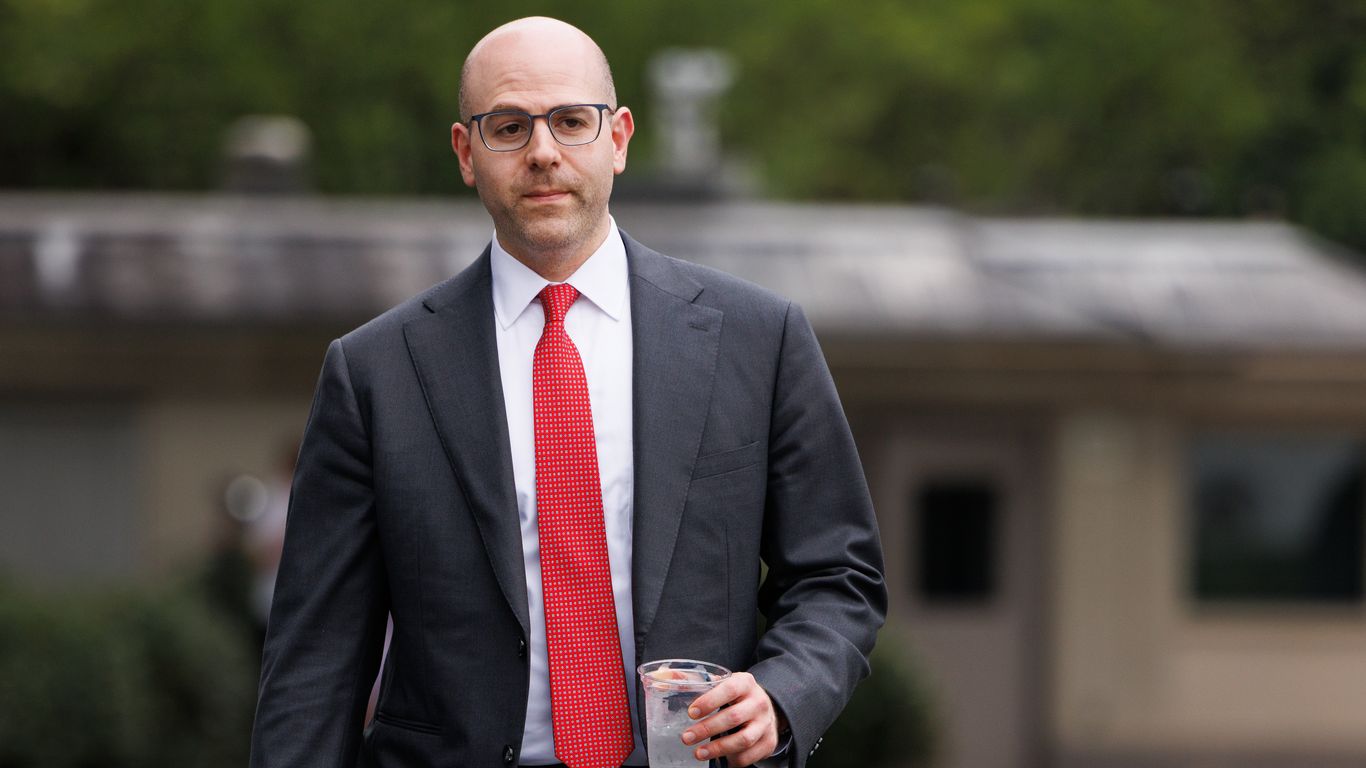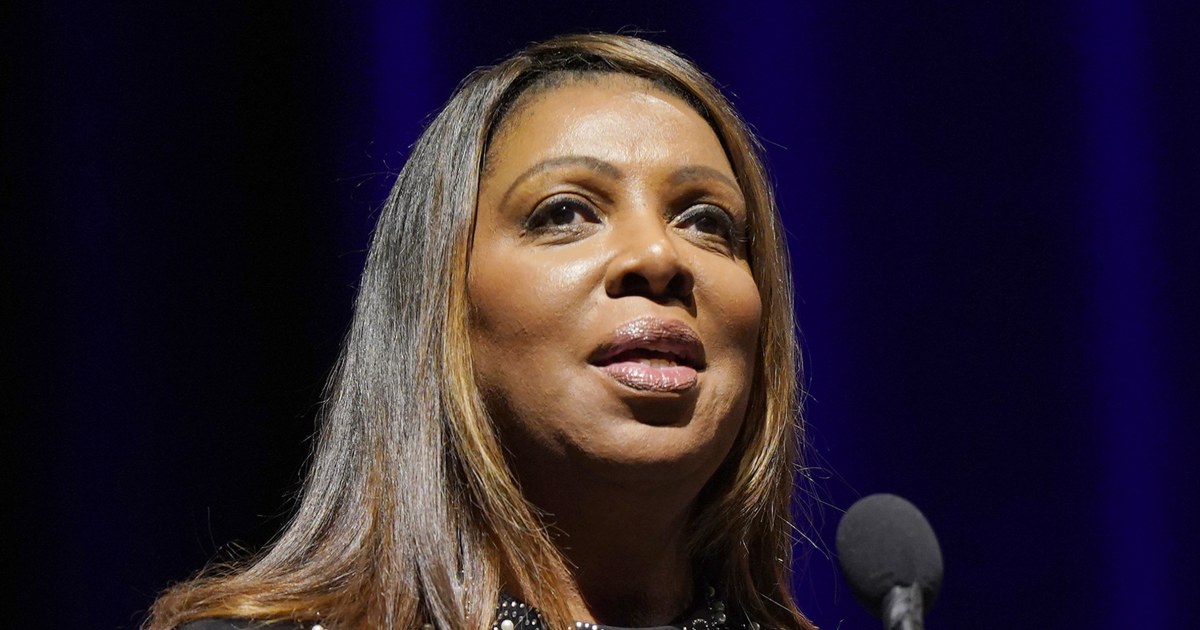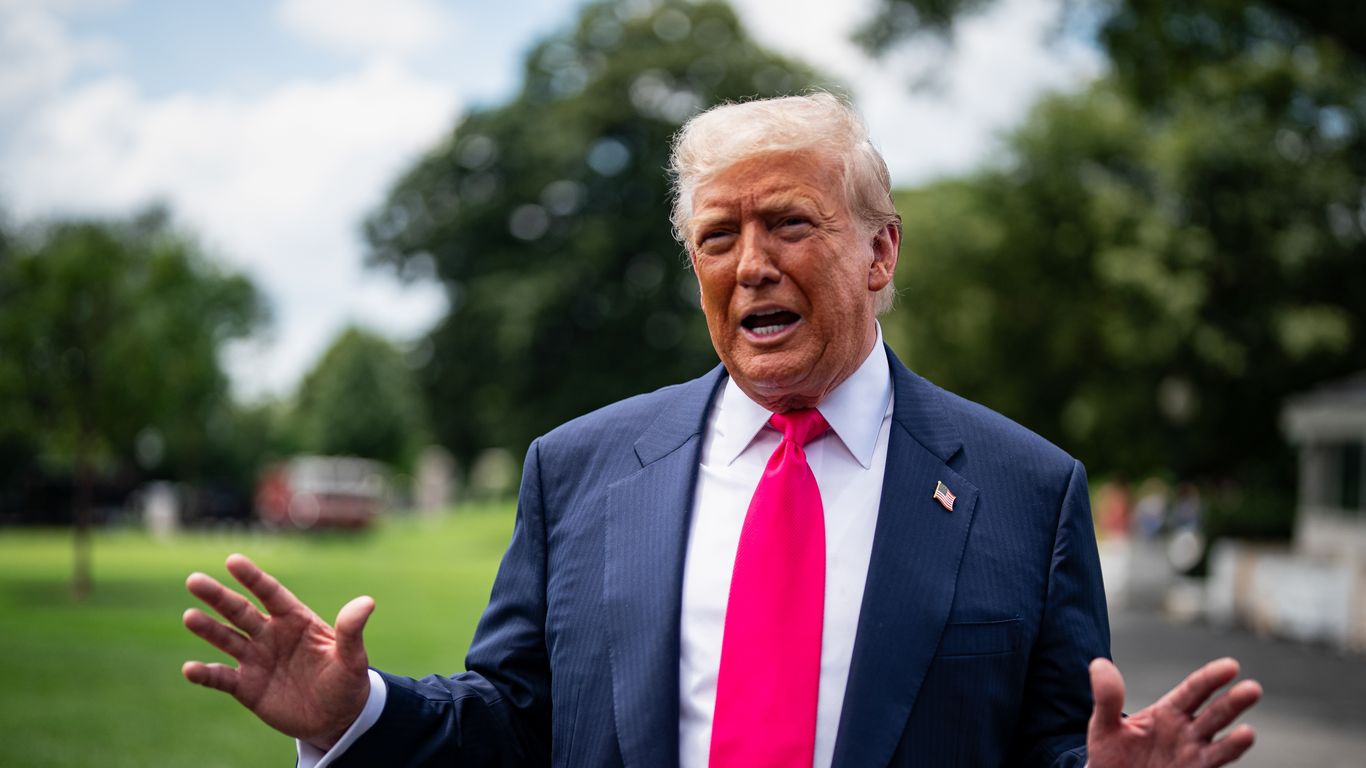President Trump Orders Increased Federal Law Enforcement Presence in Washington D.C.
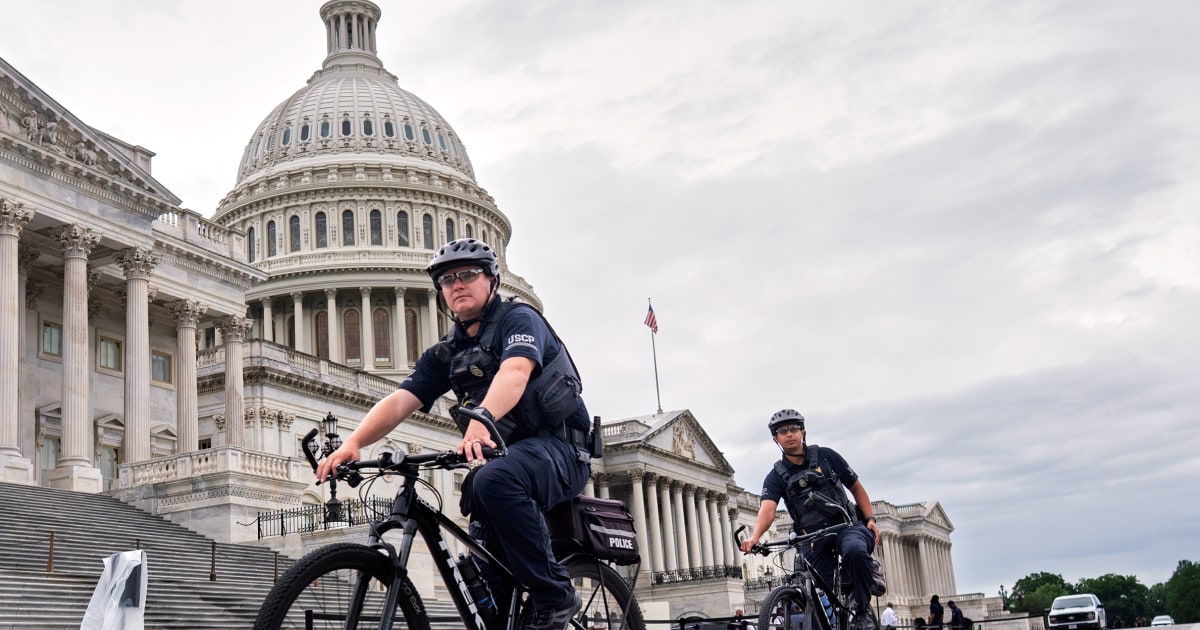
Introduction
In response to the rising crime rate in Washington D.C., President Trump has ordered an increased federal law enforcement presence in the city. This seven-day operation, which may be extended, is aimed at boosting public safety and cracking down on criminal activity. According to U.S. Park Police, the operation has already resulted in multiple gun and drug arrests in just the first day.
Key Details
The decision to increase federal law enforcement presence comes amid a spate of violent crimes in the nation's capital. In the past month, there have been several high-profile shootings and homicides, sparking concerns for the safety of residents and visitors. This new operation will include additional officers from various federal agencies, such as the FBI, DEA, and ATF, as well as U.S. Park Police and other local law enforcement.
Impact
This increased presence of federal law enforcement aims to send a strong message to criminals and help restore a sense of safety and security in the city. However, some critics have raised concerns about the potential for excessive use of force and the need for a more comprehensive approach to addressing crime. It remains to be seen if this operation will have a lasting impact on the crime rate in Washington D.C. or if further measures will be needed to address the underlying issues contributing to the increase in criminal activity.
About the People Mentioned
Donald Trump
Donald John Trump, born June 14, 1946, in Queens, New York, is an American businessman, media personality, and politician. He graduated from the University of Pennsylvania’s Wharton School in 1968 with a degree in economics. In 1971, he took over his family’s real estate business, renaming it the Trump Organization, through which he expanded into building and managing skyscrapers, hotels, casinos, and golf courses. Trump gained widespread fame as the host of the reality TV show *The Apprentice* from 2004 to 2015, which helped establish his public persona as a successful entrepreneur. Trump entered politics as a Republican and was elected the 45th president of the United States, serving from 2017 to 2021. His presidency was marked by significant policy actions including tax cuts, deregulation, the appointment of three Supreme Court justices, renegotiation of trade agreements (notably replacing NAFTA with the USMCA), and a focus on immigration control including border wall expansion. He withdrew the U.S. from international agreements such as the Paris Climate Accord and the Iran nuclear deal, and engaged in a trade war with China. His administration’s response to the COVID-19 pandemic was criticized for downplaying the virus’s severity. Trump was impeached twice by the House of Representatives—first in 2019 for abuse of power and obstruction, and again in 2021 for incitement of insurrection—but was acquitted by the Senate both times. After losing the 2020 election to Joe Biden, Trump challenged the results, culminating in the January 6, 2021, Capitol riot. He remains a central figure in American politics, having won the 2024 presidential election and returned as the 47th president in 2025, continuing to promote policies aimed at economic growth, border security, and military strength[1][2][3][4].
About the Organizations Mentioned
FBI
The Federal Bureau of Investigation (FBI) is a premier law enforcement agency in the United States, renowned for its role in protecting the nation from domestic and international threats. Founded on July 26, 1908, as the Bureau of Investigation, it was initially tasked with addressing land fraud and corporate malfeasance under President Theodore Roosevelt[1][2]. Over time, its mandate expanded significantly, particularly with the passage of the Mann Act in 1910, which allowed federal jurisdiction over certain moral offenses[1][4]. ### History and Evolution The FBI underwent significant transformation under J. Edgar Hoover, who became its director in 1924. Hoover implemented strict hiring standards and enhanced operational capabilities, transforming the agency into a robust investigative force[1][4]. The FBI's name was officially changed to the Federal Bureau of Investigation in 1935[5][6]. Throughout its history, the FBI has faced challenges, including concerns about potential abuses of power, but it has consistently demonstrated its value in national security and law enforcement[3][4]. ### Key Achievements The FBI has been instrumental in combating various crimes, including white-collar offenses, civil rights violations, and national security threats. Notable achievements include its role in enforcing the Espionage Act during World War I and its investigations into organized crime throughout the 20th century[2][4]. ### Current Status Today, the FBI is a sophisticated agency with over 37,100 employees, including special agents and professionals in various fields such as intelligence analysis and cybersecurity[5]. It operates in 55 field offices across the U.S. and has an international presence in 81 nations[5]. The FBI continues to evolve, addressing emerging threats like cybercrime and terrorism while maintaining its commitment to justice and integrity. ### Notable Aspects The FBI is known for its rigorous training programs at the FBI Academy in Quantico, Virginia, and its advanced forensic capabilities at the FBI Laboratory. Its work in business and technology includes
DEA
It appears there might be confusion regarding the organization "DEA." However, based on the search results, it seems you might be referring to the "Digital Entertainment Group" (DEG), which is a prominent organization in the entertainment technology sector. Here's a summary of DEG, as there is no information available about an organization named "DEA" in the context provided: ## About the Digital Entertainment Group (DEG) The **Digital Entertainment Group (DEG)** is an organization that advocates and promotes entertainment platforms, products, and distribution channels supporting the movie, television, audio, consumer electronics, and IT industries. DEG's primary objectives include connecting key industry players, providing insights on emerging trends, supporting marketing initiatives, and implementing standards for the digital supply chain. ## History and Objectives DEG was not specifically mentioned in terms of its founding year in the search results. However, it has been involved in promoting digital entertainment formats and distribution models for several years. The organization focuses on driving revenue for its members by facilitating collaboration between content providers, device manufacturers, and service providers. ## Key Achievements - **Industry Collaboration**: DEG fosters alliances like the Direct-to-Consumer Alliance (D2CA) and the Advanced Content Delivery Alliance (ACDA), which aim to enhance content delivery and consumer experiences. - **Emerging Trends**: It provides members with cutting-edge knowledge on emerging trends and technologies to prepare for industry growth. ## Current Status DEG continues to play a significant role in the entertainment industry by promoting new distribution models and formats. It has international sister organizations, such as DEG Europe, DEG Nordic, and DEG Japan, which help maintain global consistency in messaging. ## Notable Aspects - **Leadership**: DEG has a diverse leadership team from major companies like Google, NBCUniversal, and Paramount Pictures. - **Global Reach**: With its international sister organizations, DEG maintains a strong global presence in the digital entertainment sector. Overall,
ATF
The Bureau of Alcohol, Tobacco, Firearms and Explosives (ATF) is a pivotal U.S. federal law enforcement agency under the Department of Justice, tasked with safeguarding communities from violent crime, terrorism, and illegal trafficking of firearms, explosives, alcohol, and tobacco. Originally rooted in enforcing tax laws dating back to the 1790s, the ATF evolved from its early focus on alcohol taxation—famously confronting the Whiskey Rebellion—to become a modern regulatory and investigative force. In 2003, its mandate expanded to include explosives, reflecting its growing role in national security. ATF’s core responsibilities include enforcing the Gun Control Act and the National Firearms Act, regulating interstate commerce in firearms and explosives, and investigating arson, bombings, and acts of terrorism. The agency operates a unique fire research laboratory in Maryland, enabling advanced forensic analysis of arson cases. It also partners with state and local law enforcement through initiatives like Project Safe Neighborhoods, leveraging technology and data to disrupt criminal networks and enhance public safety. A notable achievement was the expansion of explosives regulations under the Safe Explosives Act of 2002, which mandated background checks and federal permits for explosives handling. However, ATF has faced criticism, including controversies over high-profile incidents like Ruby Ridge and Waco, and legal battles over regulations, such as its 2009 loss in a case involving amateur rocketry fuels. Today, ATF employs over 5,000 people with a budget nearing $1.5 billion, maintaining a critical presence in both regulatory oversight and criminal investigations. Its work directly impacts industries ranging from firearms manufacturing to alcohol distribution, making it a key player in the intersection of business, technology, and public safety. Despite ongoing debates about its authority and funding, ATF remains central to America’s efforts to combat violent crime and ensure responsible commerce in regulated goods.
U.S. Park Police
The United States Park Police (USPP) is the oldest uniformed federal law enforcement agency in the U.S., established by President George Washington in 1791. It functions as a full-service police force with jurisdiction primarily in the National Park Service areas of Washington, D.C., New York City, and San Francisco, as well as certain other federal lands. The USPP has both federal and state police authority in these metropolitan regions, allowing it to perform crime prevention, investigation, and apprehension duties comparable to urban police agencies[1][2][3]. The agency is a unit of the National Park Service under the Department of the Interior and protects iconic national monuments such as the Statue of Liberty, Ellis Island, and the Jefferson Memorial. USPP officers also provide security for the President, Secretary of the Interior, visiting dignitaries, and major special events conducted in national parks. Their patrol areas include several major parkways and federally managed recreation areas[1][5]. The USPP maintains several specialized units, including a Marine Unit, Aviation Unit, SWAT team, K-9 Unit, Mounted Horse Unit, Motorcycle Unit, and a Criminal Investigations Branch, enabling them to address diverse law enforcement challenges in urban and park settings[1]. As of April 2022, the force comprised 494 officers[1]. Leadership includes Chief Scott Brecht, a veteran with experience in law enforcement operations, investigations, and protective services, and Assistant Chief Schneider, a 20-year USPP veteran with expertise in homeland security and counterterrorism[4]. The USPP emphasizes integrity, honor, and service as core values, striving to be the premier federal police agency by ensuring public safety, preserving national treasures, and protecting constitutional rights such as free speech and assembly in public parks. Its long history, specialized capabilities, and unique jurisdiction make it a critical federal law enforcement organization balancing public safety with the stewardship of national parks and monuments[1][4][5][7].

